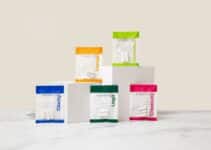If you've ever wondered about navigating the FDA's approval path for nootropic supplements, you're not alone. Understanding the process can seem like untangling a complex web, but with the right guidance, it becomes clearer. From defining nootropic supplements to delving into FDA regulations, safety considerations, and clinical research requirements, each step plays a crucial role in the approval journey. Navigating the labeling and claims, adverse event reporting, and post-market surveillance are also key aspects to comprehend. By gaining insight into this path, you can better understand the intricate process of bringing a nootropic supplement to market while ensuring safety and compliance.
Key Takeaways
- Clinical trials are necessary to demonstrate the safety and effectiveness of nootropic supplements.
- FDA sets rigorous research standards for the approval of nootropic supplements.
- Efficacy claims for nootropic supplements should be supported by credible scientific evidence.
- Compliance with FDA regulations, including the New Dietary Ingredient Notification (NDIN) process, is crucial for regulatory approval and safety requirements.
Definition of Nootropic Supplements
Nootropic supplements are substances that are used to enhance cognitive function and brain performance. Many people are drawn to these supplements due to their potential benefits, such as improved focus, memory, and mental clarity. However, it's important to understand that the effectiveness of these supplements can vary widely, and not all products on the market have undergone rigorous testing to support their claims. Regulation of nootropic supplements is also a concern, as the FDA does not strictly oversee these products in the same way it does with pharmaceuticals. This lack of regulation means that consumers must be vigilant about the quality and safety of the products they choose. Before incorporating any nootropic supplement into your routine, it's crucial to thoroughly research and consider the potential risks and benefits.
FDA Regulations for Dietary Supplements
To understand the regulatory landscape for dietary supplements, you should be aware that the FDA does not scrutinize these products as rigorously as pharmaceuticals. When it comes to dietary supplements, regulatory compliance and quality assurance are essential. Here's what you need to know:
- Regulatory Compliance: The FDA regulates dietary supplements under a different set of regulations compared to pharmaceuticals. These regulations are not as stringent, leading to variations in product quality and consistency.
- Quality Assurance: Unlike pharmaceuticals, dietary supplements are not required to undergo pre-market approval for safety and effectiveness. This can impact the reliability and safety of these products.
- Labelling Requirements: The FDA has specific labelling requirements for dietary supplements, including accurate ingredient lists and health claims.
- Adverse Event Reporting: Unlike pharmaceuticals, dietary supplement manufacturers are not required to report adverse events to the FDA.
Understanding these regulatory aspects is crucial for consumers and manufacturers alike. Moving forward, let's delve into safety considerations for nootropic supplements.
Safety Considerations for Nootropic Supplements
When considering the safety of nootropic supplements, it's essential to prioritize ingredient transparency. Monitoring for adverse effects is crucial to ensure the well-being of consumers. Accurate labeling is also of utmost importance to provide clear information about potential risks.
Ingredient Transparency Is Essential
For ensuring the safety of nootropic supplements, you should prioritize ingredient transparency. This is crucial for maintaining high transparency standards and ensuring the safety and efficacy of the products. When it comes to ingredient transparency, consider the following:
- Clear Ingredient Sourcing: Ensure that the sources of the ingredients used in the nootropic supplements are clearly stated and traceable.
- Third-Party Testing: Look for products that have undergone third-party testing to verify the purity and quality of the ingredients.
- Complete Ingredient List: The supplement should provide a complete and detailed list of all ingredients used, including any fillers or additives.
- Dosage Information: Clear information regarding the dosage of each ingredient should be provided to help consumers make informed decisions about their consumption.
Adverse Effects Monitoring Needed
In the context of ensuring the safety of nootropic supplements, you need to actively monitor and address any potential adverse effects that may arise from their consumption. Adverse events associated with these supplements require diligent regulatory oversight to ensure consumer safety. Continuous monitoring and reporting of adverse events are crucial to promptly identify and address any potential risks or health concerns. Here's a table to illustrate the importance of adverse effects monitoring:
| Importance of Adverse Effects Monitoring | |
|---|---|
| Ensures consumer safety | |
| Promotes regulatory oversight | |
| Identifies and addresses potential health risks |
Monitoring adverse effects is essential to ensure the safe consumption of nootropic supplements and to maintain regulatory compliance.
Moving forward, let's delve into why labeling accuracy is crucial in the context of nootropic supplements.
Labeling Accuracy Is Crucial
To ensure the safe consumption of nootropic supplements and maintain regulatory compliance, you must prioritize the accuracy of labeling. Proper labeling is crucial for conveying essential information to consumers and ensuring their safety. Here are some key considerations:
- Product Testing: Rigorous testing of the ingredients and final product is essential to verify the accuracy of the label information.
- Quality Control: Implementing robust quality control measures during the manufacturing process is imperative to ensure that the final product matches the label claims.
- Ingredient Accuracy: Accurate listing of all active and inactive ingredients is vital to prevent allergic reactions or adverse effects.
- Dosage Information: Providing precise dosage instructions on the label is critical for ensuring the safe and effective use of the supplement.
Maintaining precise labeling is crucial for consumer safety and regulatory compliance. This accuracy is fundamental for making informed decisions and promoting the safe use of nootropic supplements. Moving forward, it is essential to explore the requirements for clinical studies and research.
Clinical Studies and Research Requirements
To meet the FDA's standards for nootropic supplement approval, you must conduct a specific number of clinical studies and meet rigorous research requirements. Clinical trials play a crucial role in demonstrating the safety and effectiveness of your nootropic supplement. These trials must adhere to strict research standards set forth by the FDA. It is essential to design these studies meticulously, ensuring that they are well-controlled and provide reliable data. The FDA emphasizes the importance of conducting these trials with proper methodologies to produce credible results. Additionally, the research standards necessitate thorough documentation and analysis of the data collected from these clinical studies. Meeting these requirements is vital in obtaining FDA approval for your nootropic supplement, as they demonstrate the product's safety and efficacy.
Labeling and Claims for Nootropic Supplements
When labeling and making claims for your nootropic supplements, ensure that you accurately convey the product's intended use and benefits. To effectively navigate the FDA approval path, consider the following:
- Efficacy Claims: Clearly state the specific benefits and intended effects of your nootropic supplement, ensuring that the claims are supported by credible scientific evidence.
- Marketing Restrictions: Be mindful of the limitations set by the FDA on the marketing and promotion of your product. Avoid making exaggerated or unproven claims about the effectiveness of the supplement.
- Regulatory Compliance: Familiarize yourself with the FDA regulations regarding the labeling of dietary supplements, including required disclaimers and ingredient disclosures.
- Consumer Transparency: Provide transparent and accurate information about the composition, usage, and potential effects of the supplement to empower consumers to make informed decisions.
New Dietary Ingredient Notification (NDIN) Process
You should submit a New Dietary Ingredient Notification (NDIN) for your nootropic supplement to the FDA if it contains an ingredient not marketed in the United States before October 15, 1994. This process is crucial for regulatory compliance and ensures that your product meets the necessary safety and labeling requirements. When preparing the NDIN, meticulous attention to ingredient sourcing is essential to demonstrate the safety and quality of the new ingredient. The notification should include detailed information about the ingredient, its history of use, and the basis for deeming it safe. Complying with these requirements will facilitate the FDA's assessment of the ingredient's safety for consumer use. Once the NDIN is submitted and accepted, you can then proceed to the subsequent section about 'gras (generally recognized as safe) substances'.
GRAS (Generally Recognized as Safe) Substances
After completing the NDIN process, you will need to assess whether the ingredients in your nootropic supplement qualify as GRAS (Generally Recognized as Safe) substances for commercial use in the United States. This involves a thorough safety assessment and risk evaluation to determine if the substances meet the criteria set by the FDA. Here's what you need to consider:
- History of Use: Evaluate whether the ingredient has been widely consumed for a significant period without significant adverse effects.
- Scientific Literature: Review available scientific data and studies supporting the safety of the ingredient.
- Expert Consensus: Consider the opinions of qualified experts in the field regarding the safety of the substance.
- Exposure Levels: Assess the intended human exposure levels and determine if they are within safe limits based on available data.
Adverse Event Reporting for Nootropic Supplements
If you experience any adverse effects from using nootropic supplements, it's important to report them promptly. Regulatory reporting requirements ensure that any potential risks are addressed and public safety concerns are mitigated. Your contribution to adverse event reporting can help maintain the safety and integrity of the supplement market.
Reporting Adverse Effects
When experiencing adverse effects from a nootropic supplement, promptly report them to the FDA for evaluation and monitoring. It is crucial to ensure the safety of these products and contribute to ongoing research. Here are the reporting requirements for adverse events related to nootropic supplements:
- Timeliness: Report adverse effects as soon as possible after experiencing them.
- Details: Provide specific details about the adverse event, including the name of the nootropic supplement, dosage, and any other relevant factors.
- Healthcare Provider Involvement: Notify your healthcare provider about the adverse effects and seek medical attention if necessary.
- FDA MedWatch: Utilize the FDA's MedWatch program to submit voluntary reports about adverse events, which can be done online or via phone.
Regulatory Reporting Requirements
To comply with regulatory requirements for adverse event reporting of nootropic supplements, promptly submit detailed reports to the FDA when experiencing any negative effects. It is crucial for regulatory compliance and public safety that adverse event tracking is thorough and comprehensive. When reporting adverse events, include all relevant information such as the name of the product, the date of use, any concomitant medications or supplements, and a detailed description of the adverse event. Additionally, provide your contact information for follow-up inquiries. It is important to note that timely and accurate adverse event reporting plays a vital role in ensuring the safety and effectiveness of nootropic supplements. By adhering to these regulatory reporting requirements, you contribute to the ongoing monitoring and assessment of the safety profile of these products.
Public Safety Concerns
Promptly report any negative effects experienced from using nootropic supplements to ensure public safety and regulatory compliance. It's essential to understand the potential risks associated with these supplements and take appropriate action to mitigate them. Here are some key points to consider:
- Consumer Education: Educate yourself about the potential side effects and risks associated with different types of nootropic supplements.
- Adverse Event Reporting: Familiarize yourself with the process for reporting any adverse events or negative effects experienced from using these supplements to the FDA or other regulatory bodies.
- Risk Assessment: Regularly assess the potential risks and benefits of using specific nootropic supplements, and consult with healthcare professionals if needed.
- Transparency: Encourage transparency within the community by sharing your experiences, both positive and negative, to help others make informed decisions.
Inspections and Compliance for Manufacturers
You need to ensure that your manufacturing facility is in compliance with FDA regulations before and during the production of nootropic supplements. Adhering to manufacturing standards and implementing stringent quality control measures is crucial to meet FDA requirements. Regular inspections by the FDA are conducted to verify that your facility maintains proper manufacturing standards and follows quality control procedures to ensure the safety and efficacy of your nootropic supplements. It's essential to consistently monitor and evaluate your manufacturing processes to guarantee compliance with FDA regulations. By proactively addressing any potential compliance issues and maintaining high standards for quality control, you can demonstrate your commitment to producing safe and effective nootropic supplements. Compliance with FDA regulations is vital to ensure the public's safety and trust in your products.
Importing and Exporting Nootropic Supplements
Ensure that your nootropic supplements comply with FDA regulations when importing and exporting them to and from the United States. To navigate the importing and exporting process smoothly, consider the following:
- Importing Regulations: Familiarize yourself with the FDA's specific regulations for importing nootropic supplements. Ensure that your products meet all requirements and standards set forth by the FDA to avoid any potential issues upon entry into the United States.
- Export Documentation: Prepare all necessary export documentation to ensure compliance with the regulations of the destination country. This may include certificates of analysis, product labeling, and other relevant paperwork required for exporting your nootropic supplements.
- Customs Clearance: Be prepared for customs clearance procedures, which may include inspections and the submission of additional documentation. Familiarize yourself with the customs clearance process to facilitate the smooth import and export of your nootropic supplements.
- Legal Assistance: Consider seeking legal assistance to navigate the complexities of importing and exporting regulations, ensuring full compliance with both FDA and international standards.
Post-Market Surveillance and Monitoring
After ensuring that your nootropic supplements comply with FDA regulations during the importing and exporting process, it is important to establish a robust post-market surveillance and monitoring system to track their performance and address any potential safety concerns. This involves continuously collecting and analyzing surveillance data to conduct ongoing risk assessment and ensure the safety and efficacy of your products. By implementing a comprehensive post-market surveillance plan, you can promptly identify and address any adverse effects or unexpected reactions associated with your supplements. This proactive approach not only demonstrates your commitment to consumer safety but also allows you to make any necessary adjustments to your product to maintain compliance with FDA regulations.
| Post-Market Surveillance and Monitoring | |
|---|---|
| Purpose | Track performance and address safety concerns |
| Activities | Collecting and analyzing surveillance data |
| Objective | Ongoing risk assessment and product safety |
| Benefits | Prompt identification and resolution of safety issues |
Frequently Asked Questions
How Do Nootropic Supplements Interact With Other Medications or Supplements?
When taking nootropic supplements, it's important to consider potential interactions with other medications or supplements. These interactions could lead to side effects or reduce the effectiveness of your current regimen. Always consult a healthcare professional for guidance.
Are There Any Specific Restrictions on Marketing or Advertising for Nootropic Supplements?
When marketing nootropic supplements, it's important to engage in ethical marketing practices to ensure consumer awareness. This includes being transparent about product claims and potential effects, as well as adhering to any regulations set forth by the FDA.
Can Nootropic Supplements Be Recommended for Specific Medical Conditions or Cognitive Impairments?
When it comes to medical recommendations for cognitive impairments, nootropic supplements should be approached with caution. Treatment options should be based on clinical evidence and professional advice, ensuring safety and effectiveness for specific conditions.
What Are the Potential Long-Term Effects of Regular Use of Nootropic Supplements?
Regular use of nootropic supplements may pose potential risks such as cognitive decline. It's essential to monitor and assess the long-term effects, as individual responses can vary. Consulting a healthcare professional is advisable for personalized guidance.
How Do Nootropic Supplements Differ From Prescription Medications for Cognitive Enhancement?
So, you're curious about how nootropic supplements differ from prescription medications for cognitive enhancement. Well, while nootropics may offer potential benefits, their safety and ethical implications raise important concerns that warrant careful consideration.
Conclusion
Now that you understand the FDA's approval path for nootropic supplements, you can make informed decisions about the safety and efficacy of the products you choose. Remember to always look for evidence of clinical studies and research, as well as proper labeling and compliance with regulations. Your health and well-being are important, so take the time to do your research and choose wisely.



